This is a question many people use when debating the existence of God, but it is probably the most loaded question in existence. Who decides which of us are good and bad? What constitutes a terrible tragedy? How would the answer to this question even help us personally? It seems to me like this is not the right question to ask, as it only creates more.
Judgment
There is nothing new to the concept of judgment. It is an action that one imposes upon another when they feel that they are in a place of power, superiority, or other advantage. The truth of things is that no one is better than anyone else. We are all electrically charged bags of meat and bone. We are all born and we will all die. No human is more significant than any other beyond this short lifespan.
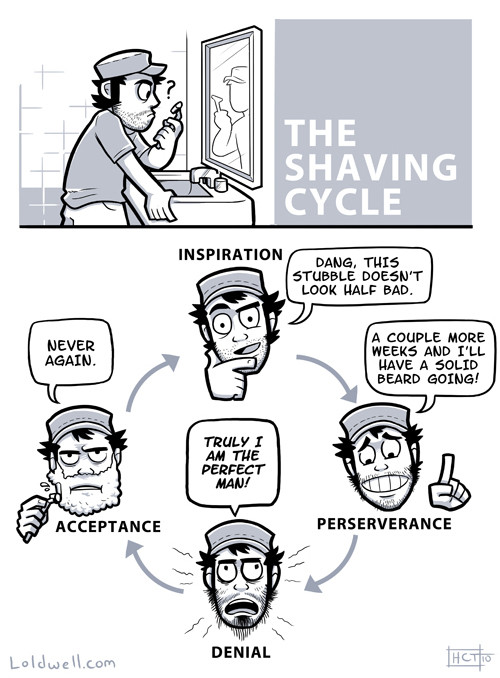
We forget these things because our daily life is filled with propaganda meant to brainwash us into thinking we are less important than someone else. The President is on Television telling us what to do. We grow up with our parents and teachers telling us whether we are right or wrong. Our bosses speak to us as if we were insignificant insects. All of these people consider us a small part of their own worlds; and sometimes we allow ourselves to believe it.
It is because of these delusions of grandeur and inferiority that we feel the need to pass judgment on others as well. No one is a good person. No one is a bad person. These are values bestowed upon us by others that know little or nothing about us. Even people who would consider themselves bad are doing so because they look upon others as being better than themselves. No one can be evaluated accurately by their equal. And no human is greater than any other human, so judgment is something that one should never practice.
As a society, this idea is incredibly well accepted, and yet we live our every day going against it and accepting the society around us as it stands. This is not a political article, so I’ll leave the method of repairing this discrepancy out for now, but it merits some thought to consider how far each of us are from our own ideals.
The Scalability of Human Experience
Each person develops from birth along a path that is laid before them by the universe. No one has control over their paths in life at any time in their conscious life. No person makes choices that are not guided by the experiences that have brought them to that point.

At the time of conception, the human body is a blank slate, but this is a state that only exists for an immeasurably small amount of time. The development of this person from that point forever is entirely shaped by factors beyond itself. If the mother drinks, smokes, or eats certain things while pregnant, the fetus will be affected in various ways. The person is not even conscious yet, and they are already being molded in ways they cannot control.
This is true for our entire life. The person we grow into up to the time of our death is shaped by what our parents did to us, what our teachers taught us, how our friends behave around us, and the reactions that everyone in our lives has had to our own actions. This means that each person’s individuality is entirely based upon the diversity and impact of every other person in our lives.
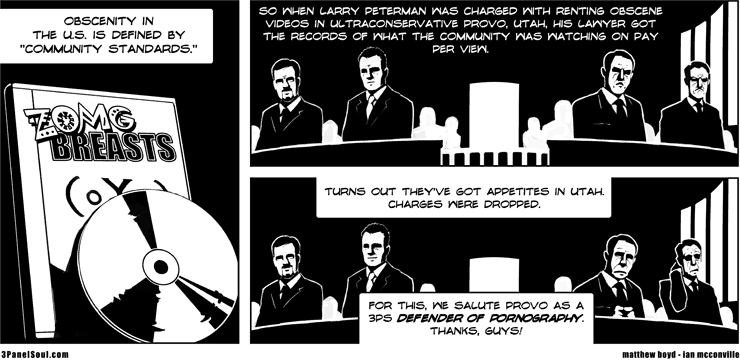
Why is this relevant to the question at the top of this article? Because our individual experiences in life are what dictate to us what a Terrible Tragedy and a Wondrous Blessing are. I will illustrate this point with two hypothetical stories, and then the true story of my own experience.
Story #1: The Momentous Crash
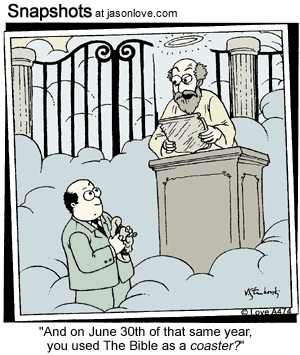
Johnny was a six year old boy that was the apple of his mother’s eye. Ever since his father died when he was a baby, his mother has treasured him as the greatest joy in her life. She gave him everything he ever wanted and kept him away from anything that could ever harm him. He spent his days playing in his room and being home schooled by his mother. It was dangerous outside and other children would tease him if he spent time around them, so he was content with his alone time with his toys.
One day after his schooling, Johnny tripped on his way back to his room and fell onto the floor, bruising his left knee. He wailed and cried loudly and grasped his knee with both hands rocking back and forth. The pain was incredibly intense and it radiated through his body continuously. Every second that went by he would wish it to stop, but it would not. He had never experienced anything so intensely painful.
A few hours later the pain had dulled to the point that he hardly noticed it anymore. His mother ran to his aid and comforted him until he stopped crying. Now, he laid in bed thinking about this terrible experience and how that was the worst day of his entire life. He vowed that he would never trip and fall again.
Story #2: The Golden Apple

Melissa had lived on the streets by herself for about a year. When she was very young, her parents had died in a car accident and she was put into a foster home. While in that home, her foster parents abused her sexually and made her sleep in the basement so she wouldn’t tell any of the other children. They often neglected to feed her for a full day, and when they did feed her it was usually only once a day.
Her foster parents woke her up late one night by throwing cold water on her as she laid on her blanket on the floor. When she cried out from the shock, they hit her and held her mouth shut. They sexually assaulted her for nearly an hour before walking back upstairs without a word and going back to their bedroom. She noticed that they didn’t lock the basement door this time, so she ran up the stairs as quietly as she could and snuck out the front door.
No matter how bad of a child she felt she was for running away from her foster home, she could never bring herself to return. Her days spent on the street were not much different from when she was in the basement, and she occasionally met other people that were going through similar things as she was. Her life was much harder now without her blankets and the meals her foster family would sometimes reward her with.
Melissa woke up one morning to a young boy, maybe only a few years older than her, gently shaking her. When she looked up at him, he asked her if she was alright and gave her an apple. She thanked him profusely and ran away with the apple to eat it around the corner. She wept tears of joy as her teeth broke the firm flesh of the apple and its juices trailed down her cheeks. This was truly the greatest day of her life.
The boy didn’t know why she ran away from him, but he knew she needed his help. He would return to that spot every day with food and other gifts that he could bring from home until she finally stop showing up.
What It Means
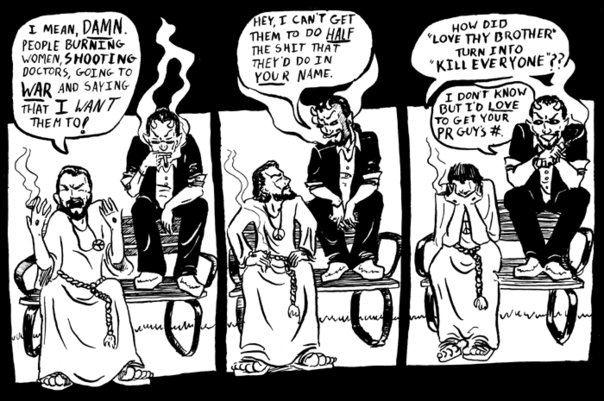
Both of these stories are on the extreme ends of a spectrum. Johnny has lived a life without much stimuli, so when he experiences something new, he reacts with fear and surprise. The bruise on his knee was the worst pain he had ever experienced in his lifetime, so it felt far more pronounced to him than it would to other children that had experienced other injuries before.
Melissa lived a wretched life and never knew it because she had never experienced anything different. For her, being left hungry was an average lukewarm day. Being sexually assaulted or physically abused was a bad day in the same way we hate waking up Monday morning with a hangover. The other end of her scale is so underdeveloped however, that the kindness of a stranger drove her to tears of joy.
This is why a newborn baby screams and cries endlessly. Every experience they are having is on the edges of their experience, with nearly every stimulus becoming shockingly painful or extremely pleasing. Alternately, simple things like the baby’s father jingling keys can feel like ecstacy to a baby. With how small the scale is at that early age in our development, one could speculate forever about where the line between pain and pleasure truly lies.
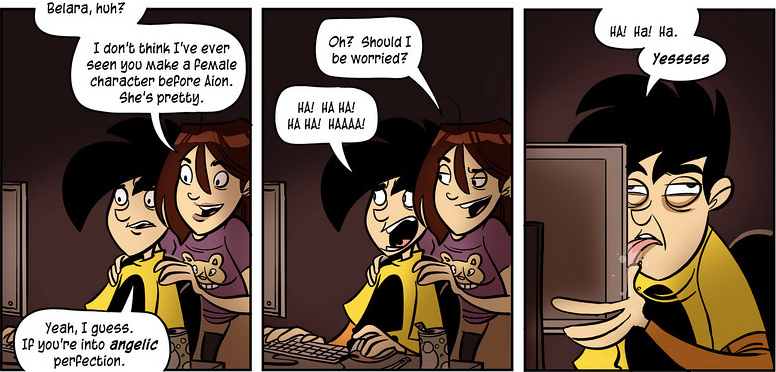
By this logic, there is zero possibility of anyone living a life free of terrible tragedy or wondrous blessing because it is entirely about perspective. No one can have a frame of reference beyond their own experiences, and any effort to restrain or extend that frame artificially will fail. Vicarious experiences are never mor than dull and watered-down copies of the actual experience.
In My Own Life
I like to think that I live an above average life when it comes to fortune and tragedy, but I don’t really know how to express that. I make efforts to empathize with others, but I will never be able to truly understand their Scale.
The worst physical pain that I have ever experienced in my life was being shot up with novocaine (or some other pain killer) into my inflamed gums when I had braces. I was supposed to keep still, but my entire body would jump and twitch uncontrollably due to the pain. The inflammation made my gums hyper-sensitive and they had to stab me at least five times with the giant needle before I finally passed out. The drugs didn’t make me pass out, mind you, but the pain did. I don’t remember anything else of the procedure except for waking up in the dentist chair feeling light headed and disoriented. The pain would slowly return later that day when the pain killers wore off, but the procedure’s aftermath was far easier to deal with than the method of numbing my pain.
The worst emotional pain I ever experienced was when I was told by my first love that she had been cheating on me for months, but that she still loved me. Then, I was painfully dragged through a few months of me “trying to make it work” while she continued her same behavior. This led to me driving to the clinic to get tested for everything ASAP, and (very luckily) coming up clean. Without going too deep into it, that woman fucked me up beyond all repair when it comes to my romantic relationships. As horrible as this was, if it ever happened to me again, I would be little more than pissed off. It probably wouldn’t completely break me the way it did the first time.
The scariest moment of my life was probably feeling the ground under me shake on September 11th. I remember the whole day and I’d be happy to talk about it to anyone interested, but that moment was the time when I knew it was real. A few seconds after I felt it, I saw the buildings fall on TV (after the delay). I thought of nothing in that moment other than it was time to get home. I wondered if the whole country was being attacked and dreaded hearing about all the loved ones that I knew worked or frequented the WTC. Luckily, everyone I knew wasn’t there that day. Sadly, many people were not so lucky.
The saddest time in my life was probably when my Grandfather died. I awoke around 2 or 3am to the phone ringing. I picked it up and heard my mom’s voice, which was weird because I thought she was right downstairs. She told me my grandfather (her father) had died. I didn’t know what to say, so I hung up the phone and went back to sleep. I don’t know when it hit me, but it wasn’t until later when I really got upset about it.
I honestly can’t decide on the greatest pleasure of my life, but a few that stick out to me are:
- Building sand castles on the Jersey Shore with my Grandfather.
- Having my stepbrother (the coolest guy on earth at the time) tell me that I was really good at drawing.
- The first time I sacked the opposing team’s Quarterback in a JV Football game.
- Receiving a standing ovation for my role in Crazy for You (High School).
- Our first August at my mom’s beach house.
- Making out with a girl for the first time. (She was out of my league too)
- Getting my braces taken off and dating cheerleaders for the first time ever.
- Losing my virginity.
- Shortly after the above, being told I was good at it. (It was probably a lie, but who cares? :-P)
- Receiving 5 awards at a State-Wide acting competition, including “Best Actor”
- Moving to Arizona by myself for a real adventure.
- Snorkeling in Kona, Hawaii with Kati and her parents.
- Getting my first dog, SooCoo.
- Getting my first salaried job as a designer.
- Getting my first job in the gaming industry.
Some of these things are so silly and petty looking back, but that’s almost its own reward. Thinking about this list makes me smile even now as a jaded 27-year old man with bills, a job, a dog, responsibility, and stuff. But take it or leave it, this is my scale.
Most people have completely different highs and lows in their own scales, but very few have enough information to truly compare their greatest and worst things with mine. Even those who can identify with some of my experiences weren’t having those experiences from the same perspective as I was. This is why honest empathy is so difficult.
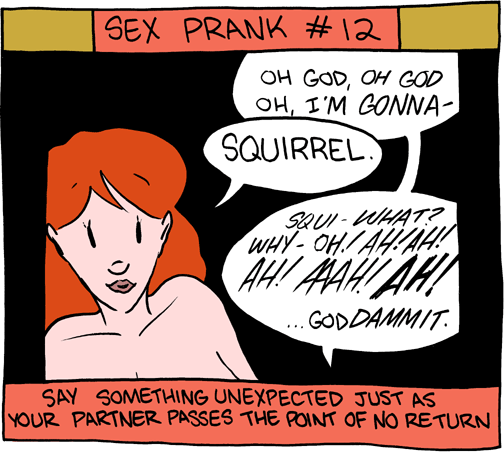
A few weeks ago, Kati and I were discussing something that lead her to describe the pain of this person as “It was as bad as childbirth.” I told her that her description really doesn’t aid me at all since I have never, nor will I ever give birth. I get that it’s described by others as the most painful thing ever experienced by most mothers, but I don’t know what that means. For all I knew, they had lives like Johnny, where the pain was incredibly severe for them, but it wouldn’t be for others.
I was told that I was insensitive and being overly technical about the whole thing, which might be true, but it doesn’t change the fact that I will (thankfully) never know how painful childbirth is for myself. I do know however, that if I punched my mom in the face, she’d probably think it hurt more than I would if I were punched in the face, so that’s something right? No? Okay, I’ll stop talking now.
Age is the Lens
Patton Oswalt has a great short joke where he talks about how his scale of experience has changed over the years. I tried to find a video clip of the joke, but it is hard to find one of the smaller jokes in such a widely known comedian’s history. I’ll poorly paraphrase the joke now instead.
When I was a young man, I used completely different words to express joy and sadness. If something good happened I would yell “Really!? Aww yea! Awesome!” and if something bad happened, you’d hear me shout “Awww man! No!!! This sucks!”
Today if something good happened to me, I’d probably mumble “Oh. Cool.” and if something bad happened, “Aww.”
I know, it really doesn’t sound like a joke in text, but the animated nature of the delivery can’t really be brought out of the visual realm. The point is there of course. As we get older and we experience more varied events in our lifetime, our scale of experience expands in all directions. Every stimulus we receive gets pushed between the others and shoves everything outward.
I haven’t experienced anything that was on the very edge of my scale in years now. I expect that these things will continue to get rarer over time. I try to add things to the happier edges all the time, but it takes a lot more now than it used to. By the same token, there are fewer bad things that can happen that will truly devastate me.
Understanding Scales
I find that it helps put things in perspective in my life if I understand the events I shared earlier. When I lost my job a couple years ago, it helped me to stay positive when I put it in perspective. When you think about some of the greatest and worst things that ever happened to you, that argument you had with your girlfriend or your asshole boss yelling at you don’t seem like a big deal. You can also look back at the great things that happen to you in your life and fully appreciate them.
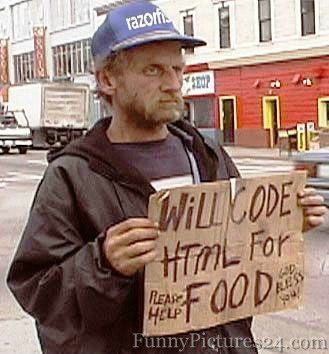
Oh yea. I’ve hit the mean streets of tech job city.
In addition to understanding our own subjective feelings about everything that has happened in our life, it is important to empathize with others and their experiences. Socializing is much better when we can relate our experiences with others’. Some of us share a few experiences that overlap, which gives us an idea of what others have been through. This is the closest we can ever get to seeing the world through their eyes.
Of course, some people have different feelings about the same experiences. Occasionally, I meet women that tell me that childbirth isn’t as bad as something else they went through. I’ve met guys that say that getting kicked in the balls isn’t that bad. I have never met another man in my life that told me they never got blue balls. Not that I think I’m missing out or anything, but I will never know what that’s like. Girls turn me down all the time and the only pain I ever go through is in my ego.
There is a country song that Kati listens to in her car sometimes that talks about how a farmer had his home and farm destroyed in a storm. The character is being interviewed by a local newscaster asking about how horrible this must be for him. As much as I hate to quote country music, here is the chorus of the song:
That cave-in at the Kincaid mine left a big old hole.
And I lost my baby brother, my best friend and my left hand,
In a no-win situation in a place called Vietnam.
And last year I watched my loving wife, of fifty years waste away and die,
And I held her hand til her heart of gold stopped pumping,
So this ain’t nothin’.
The reporter, and by insinuation the public, have applied their scales to this man’s home being destroyed and assessed it as the worst thing ever. The fact of the matter is, they had no way to understand how it felt for him, so their pity was unwelcome and unhelpful.
In truth, we will never fully understand anyone else. They will never fully understand us, and that’s okay. Our life experience is something that is unique to us, and should be treasured. Never envy how good another person has it. Never pity how bad another person’s life has gone. We should just listen, learn, and do our best in our own lives. We can feel sorrow for someone we love’s misfortune, but we should never feel pity. Sometimes being a good friend is just being there.
Why do terrible tragedies happen to good people?
Because there is no such thing as a good person, and everyone has terrible tragedies in their lives. If you’re looking for answers to this question, the best one I can give is to learn more about yourself and find your Scale of Experience. Come to terms with the idea that we know very little and can never know everything. Then, think of a question that will actually help you in your own life and ask that one instead.
Have Questions?
I’m looking for suggestions for other “existential” philosophical questions that people commonly ask. I thought about making this a themed exercise called “Questions for God” but I didn’t want to sound like I was God by answering those questions with my take and my own philosophy. I really just like to explore ideas, and I’d like to win back my readers I’ve been neglecting by taking their input on a deeply philosophical or spiritual question they’d like to hear about.
Use the Comments area below for your suggestions!
